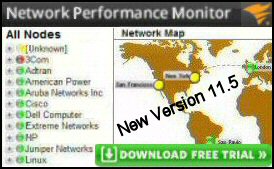All Windows PowerShell cmdlets and functions supply parameters. By mastering the seemingly endless options for these ‘switches’, you will gain precision when scripting with the underlying cmdlet.
Parameter names are introduced by a hyphen (-), and followed by a text or numeric value, for example:
Cmdlet (or function) -Parameter value
Get-WmiObject -Class Win32_ComputerSystem
Make the Most of PowerShell’s Parameters
This section explains how to make PowerShell’s parameters your friends, and thus write better scripts.
- Introduction to PowerShell Parameters
- Mandatory PowerShell Parameters
- Examples of Researching PowerShell Parameters
- PowerShell $PSDefaultParameterValues
- PowerShell Functions and Parameters
♦
Example of a PowerShell Parameter from the GCI Cmdlet
Parameter Example: -File as in Get-ChildItem -File
# One of Get-ChildItem’s parameters
………………………………………
-File [<SwitchParameter>]
Gets files.
To get only files, use the File parameter and omit the Directory parameter.
Required? false
Position? named
Default value
Accept pipeline input? false
Accept wildcard characters? false
Note 1: Experiment with Get-ChildItem -Directory; see the difference, compared with plain Get-ChildItem.
Get-ChildItem -Directory C:\Windows
See more on getting started with PowerShell parameters »
Guy Recommends: A Free Trial of the Network Performance Monitor (NPM) v11.5
v11.5
SolarWinds’ Network Performance Monitor will help you discover what’s happening on your network. This utility will also guide you through troubleshooting; the dashboard will indicate whether the root cause is a broken link, faulty equipment or resource overload.
What I like best is the way NPM suggests solutions to network problems. Its also has the ability to monitor the health of individual VMware virtual machines. If you are interested in troubleshooting, and creating network maps, then I recommend that you try NPM now.
Download a free trial of Solarwinds’ Network Performance Monitor
Techniques to Research PowerShell’s Parameters
Get-Help Unfamiliar-Cmdlet -Full
My first method to investigate a cmdlet and its parameters is Get-Help. In the above example -Full is itself a parameter! Incidentally, I prefer -Full to -Parameter or -Detailed.
# Example of Researching PowerShell’s Parameters
Clear-Host
Get-Help Get-ChildItem -Full
 Note 2: Microsoft provide another useful source of information with:
Note 2: Microsoft provide another useful source of information with:
Get-Help about_Parameters
Required or Mandatory Parameters
Many of PowerShell’s cmdlets churn out results without us having to explicitly add a parameter.
# Example PowerShell’s Default Parameter
Clear-Host
Get-Service
The logic behind the list you get from plain ‘Get-Service is worth studying:
- The Get-Service cmdlet expects a parameter called -Name in the first position.
- The default for -Name is ‘All services’.
- My point is that PowerShell is easy to learn. On its own, without any parameters, this cmdlet delivers a list of services.
However, a significant number of cmdlets won’t function until you supply a value for their required parameter, for example Get-Eventlog. See more on PowerShell’s mandatory parameters.
SwitchParameter
If you study a parameter’s details carefully, you will see that many are <string[]>, yet a few parameters are <SwitchParameter>.
Here is an example of SwitchParameter taken from Get-ChildItem:
-ReadOnly <SwitchParameter>. This simply means that this parameter’s default is ‘False’. Merely using a parameter of type SwitchParameter reverses the default and sets it to true.
# Example of PowerShell SwitchParameter
Clear-Host
Write-Host "Total of all files in root "(Get-ChildItem c:\).count
Write-Host "Read only files in root"(Get-ChildItem c:\ -ReadOnly).count
Note 3: Avoid overthink. Just remember that by default SwitchParameter is set to false. When you need to turn-on this type of parameter just type its name. There is no need to set a value of any kind, not even $true.
 Guy Recommends: SolarWinds Engineer’s Toolset v10
Guy Recommends: SolarWinds Engineer’s Toolset v10
This Engineer’s Toolset v10 provides a comprehensive console of 50 utilities for troubleshooting computer problems. Guy says it helps me monitor what’s occurring on the network, and each tool teaches me more about how the underlying system operates.
There are so many good gadgets; it’s like having free rein of a sweetshop. Thankfully the utilities are displayed logically: monitoring, network discovery, diagnostic, and Cisco tools. Try the SolarWinds Engineer’s Toolset now!
Download your fully functional trial copy of the Engineer’s Toolset v10
Measuring PowerShell -Filter
Whenever I employ the Where-Object cmdlet I ask myself, could I get better performance using -Filter instead? To compare the two techniques I use Measure-Object.
#Measuring a PowerShell -Filter
Clear-Host
Measure-Command{
Get-ChildItem ${env:ProgramFiles(x86)} -Filter *.exe -Recurse }
# Result Milliseconds: 1103
See more on PowerShell -Filter parameter »
A Nifty Method to Change a Parameter’s Default Actions
You can have fun with a built-in PowerShell command which modifies the default actions of cmdlets, this example sets the default value of -Path to C: \Windows\System 32.
# Change Default Values of Get-ChildItem
$PSDefaultParameterValues=@{
"Get-ChildItem:path"="C:\Windows\System32\";
}
Get-ChildItem
Creating Windows PowerShell Functions
Use normal PowerShell command(s) + Param (Parameters) to create a function. Function. I see a Parameter doing for PowerShell what a -switch does for a DOS command. In both cases the user gets options for the basic command.
More Windows PowerShell Sections
- Section Dedicated to PowerShell Techniques
- Section Dedicated to Real Life Examples
- Section Dedicated to Syntax
- PowerShell Introduction
- PowerShell Dreams
- PowerShell Tips
If you like this page then please share it with your friends
See more example of PowerShell’s parameters
• PowerShell Tutorials • PowerShell Parameter Introduction • Parameter Examples of Technique
• Mandatory Parameters • PowerShell $PSDefaultParameterValues • Top 10 PowerShell Parameters
• PowerShell Parameters Index • Parameter Hashtable Splatting • PowerShell 3.0 Default Parameters
Please email me if you have a better example script. Also please report any factual mistakes, grammatical errors or broken links, I will be happy to correct the fault.

